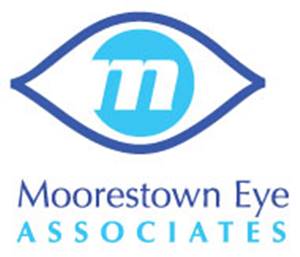At Moorestown Eye Associates, we often encounter patients who are surprised to learn how significantly allergies can impact their vision. Allergies are not just a seasonal nuisance; they can have a profound effect on your eye health. In this blog, we will explore what allergies are, what causes them, their symptoms, and how they can affect your eyes and vision. We'll also discuss effective treatments and when to see an optometrist.
What Are Allergies?
Allergies occur when your immune system reacts to foreign substances—called allergens—that are typically harmless. These allergens can include pollen, dust, pet dander, or certain foods. Your immune system produces substances known as antibodies. When you have allergies, your immune system makes antibodies that identify a particular allergen as harmful, even though it isn't.
What Causes Allergies?
Allergies can be caused by various environmental factors. Common airborne allergens like pollen, mold spores, dust mites, and pet dander are frequent culprits. Allergies can also be triggered by food, insect stings, and medications.
Symptoms of Allergies
Allergic reactions can involve various symptoms, ranging from mild to severe, including:
- Sneezing
- Itching
- Nasal congestion
- Rash
- Fatigue
- In severe cases, allergies can cause anaphylaxis, a life-threatening reaction that requires immediate medical attention.
How Allergies Affect Your Eyes and Vision
When allergens affect the eyes, this is specifically referred to as allergic conjunctivitis. Symptoms can include:
- Redness: Allergens cause dilation of blood vessels in the eyes, leading to redness.
- Itching: This is often the most bothersome symptom, causing significant discomfort.
- Swelling: Eyelids may swell due to inflammation.
- Watery Discharge: Eyes may produce excess tears in an attempt to flush out allergens.
- Blurred Vision: Swelling and watery discharge can blur vision temporarily.
These symptoms can make daily tasks uncomfortable and can significantly impair your ability to perform activities that require clear vision.
Treatments to Help with Your Eyes
There are several effective treatments to alleviate eye allergy symptoms:
- Antihistamine Eye Drops: These can quickly relieve itching, redness, and swelling.
- Artificial Tears: Help flush out allergens and moisturize the eyes.
- Cold Compresses: Applying a cold cloth to your eyes can reduce swelling and soothe irritation.
- Prescription Medications: For severe cases, stronger medications such as corticosteroid eye drops may be recommended by your optometrist.
When to See an Optometrist
You should see an optometrist if:
- Your symptoms persist despite over-the-counter treatment.
- Your vision is affected.
- You experience pain or light sensitivity, which could indicate a more severe condition.
Choose Us for Your Eye Care
At Moorestown Eye Associates, we are dedicated to providing comprehensive eye care tailored to your needs. We understand how disruptive eye allergies can be to your daily life and are equipped with the expertise and tools to help you manage these symptoms effectively.
Book With Us to Help with Your Allergies
Don’t let allergies cloud your vision. If you're struggling with eye allergies, book an appointment with Moorestown Eye Associates today. Our experienced team is here to provide you with the relief you need and the quality care you deserve. We look forward to helping you achieve and maintain clear and comfortable vision.


Click here to see which Saturdays we are open.